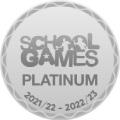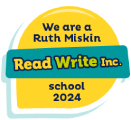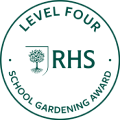Science
Intent
At Wistaston Academy, we recognise the importance of Science in many aspects of daily life. We aim to build on our children’s natural curiosity and fascination for the natural and man-made world, and promote a respect for living organisms and the physical environment. We strive to provide a fun, engaging, high-quality science education, that provides children with the foundations and knowledge for understanding the world. As one of the core subjects of the National Curriculum, we give the teaching and learning of Science the prominence it requires. Pupils will develop an understanding of the nature, processes and methods of Science through different types of scientific enquiry, that help them to answer broader questions, establish conceptual links and develop a deeper understanding of the role that science plays in the modern world. Our aims are to fulfil the National Curriculum for science by providing a broad, balanced, well-resources and differentiated curriculum, ensuring the subject content is taught in a logical progression, systematically and explicitly – so that all pupils acquire the intended knowledge, vocabulary and skills. The Science curriculum has been designed to be ambitious and to meet the needs of all pupils, including disadvantaged pupils and those with Special Educational Needs. Science lessons are designed to develop the long-term memory of our children, and to improve their culture capital and understanding of the world. Science lessons are designed to ensure that children not only acquire the appropriate age-related knowledge linked to the curriculum, but are also equipped with the scientific skills required to understand the uses and implications of Science in ways that are relevant and meaningful. We endeavour to ensure that the Science curriculum we provide will give children the confidence and motivation to continue to develop their skills into the next stage of education, and to achieve their full potential.
We have designed the Science curriculum at Wistaston Academy with the intent that our pupils will:
- Begin to explore scientific concepts from the EYFS stage, through exploratory play and both pre-planned and dynamic teaching and learning opportunities.
- Develop a natural inquisitiveness which is nurtured through well-resourced and engaging investigation and enquiry.
- Develop scientific knowledge and conceptual understanding through the specific disciplines of biology, chemistry and physics.
- Develop their use of scientific language to be able to discuss their learning and explain their scientific understanding.
- Develop scientific skills of investigation including: observation, prediction, investigation, interpretation, communication, questioning, hypothesizing, experimenting, explaining and evaluating to deepen their scientific knowledge.
- Offer their own suggestions through critical thinking and innovation.
- Develop their skills of co-operation through working with others.
- Use a range of methods to communicate their scientific information and present it in a scientific manner including computing, diagrams, graphs and charts.
- Develop a respect for the materials and equipment they handle with regard to their own, and other children’s safety.
- Develop enthusiasm and enjoyment of scientific learning and discovery.
- Be prepared for life in an increasingly scientific and technological world today and in the future.
- Understand the real-life links between Science, wider study and career opportunities.
Implementation
The Science curriculum at Wistaston Academy is based upon the Primary National Curriculum 2015, which can be found at:
This provides a broad framework for study and outlines the knowledge and skills taught at each Key Stage. The curriculum is led and overseen by the Science lead, who works alongside class teachers to plan, monitor and continually evaluate the Science taught at Wistaston Academy to ensure it is effective, exciting and continually improving. Teachers create a positive attitude to Science learning within their classrooms and provide children with rich learning experiences. Science is a subject valued and celebrated across the school through enrichment activities, field trips and engagement with local and national businesses.
The curriculum at Wistaston Academy is implemented through:
- Units which comprise of well planned, exciting, engaging and coherent sequences of lessons tailored specifically for our children.
- Lessons which draw upon, reinforce and embed skills learnt in other subjects.
- A spiral curriculum which revisits the learning and skill development of the previous years.
- The explicit teaching of key topic vocabulary underpinned by Word Aware strategies and metacognitive practice,
which ensures the pupils’ learning ‘sticks’.
- Access to high-quality texts which support the children’s understanding of key concepts and vocabulary, sparks interest in the wider topic area and fosters a love of reading across the curriculum.
- Regular feedback from teachers which not only addresses misconceptions but also deepens, challenges and supports learning.
- The use of Entry and Exit quizzes in KS1 and Concept Cartoons in KS2, aids teachers in ascertaining prior knowledge, assessing understanding and challenging children to explore and develop their ideas.
- Clear and progressive documents to support scientific enquiry.
- The use of high-quality resources to aid conceptual knowledge and scientific enquiry.
- Units of work which ensure relevant key scientific enquiry skills are taught.
- A strong focus on scientific vocabulary which is taught within the units, displayed in the classroom and consolidated through a range of activities.
- Events throughout the academic year events such as British Science Week, STEM Day and The Royal Cheshire Show which provide enrichment opportunities and enthuse the children by creating tangible links to the wider community beyond school.
The curriculum is implemented differently across the school to reflect the needs of the children at each development stage. During each stage, metacognitive strategies are utilised to aid in the long-term information storage and retrieval skills of pupils.
- In The Hub, Wistaston Academy’s SEN provision, pupils explore scientific concepts through teacher and self-led practical exploration, underpinned by the use of corresponding visuals and linked to Cherry Garden and AET curriculum targets.
- In EYFS, pupils learn about scientific ideas through the Understanding the World strand of the Early Years Foundation Stage Statutory Framework 2024 and through the non-statutory Development Matters curriculum guidance. This is through whole class input and the enhanced and continuous provision which flows through the indoor and outdoor learning spaces. Learning is completed through capturing the children’s interests, relating it to personal experiences and allowing exploration.
- In KS1, Science is incorporated into half-termly topic-based learning with some objectives being revisited across the year. This is designed to stimulate children’s interests and help them internalise their learning.
- Science in KS2 is taught through discrete lessons which follow the school’s overarching progression map. This ensures full coverage of the National Curriculum through well-planned lessons which draw upon previous learning and prepare each pupil for the next stage of their learning journey.
Impact
- High quality science lessons will provide children with the foundations for understanding the World.
- Children will be enthusiastic about Science and actively engage in their lessons.
- Children will become increasingly critical and analytical within their thinking and be able to ask questions.
- Children will have a wider variety of skills linked to both scientific knowledge and understanding, and scientific enquiry/investigative skills.
- Children will have a richer vocabulary which will enable them to articulate their understanding of taught concepts.
- Reading is promoted widely and often, leading to emersion in the subject, fluency, comprehension and enjoyment.
- Children will develop enquiry skills to pursue their own interests and further questions within a topic.
- Over their time at Wistaston Academy, children will have encountered and participated in a wide range of visits, visitors and other experiences.
- Children will make connections between what they have previously learned and what they are currently learning which will embed scientific knowledge in their long-term memory.
- Disadvantaged pupils and pupils with SEN achieve the best possible outcomes.
- Children will leave Wistaston Academy with the skills, knowledge and attitude that will allow them embrace the next stage in their education and beyond.
- Children have high aspirations for themselves and explore the possibilities for careers in Science as a result of their learning experiences.
Impact is measured through:
- Assessing children’s understanding of a topic before and after the unit is taught.
- Marking of written work.
- Assessing children’s learning through questioning and discussion.
- Pupil and staff questionnaires.
- Book scrutinies.
- Lesson observations and learning walks
- Dialogues at staff meetings
- Formal reporting at the end of each key stage.
Equal Opportunities and Inclusion
The whole school policy on equal opportunities is adhered to throughout the planning and delivery of Science lessons. Teachers ensure that all children have access to the full range of Science activities and use every opportunity to raise aspirations and challenge stereotypes.
All pupils with Special Educational Needs and/or Disabilities are supported to engage fully with Science lessons by ensuring fair and equal access to the curriculum. Examples of how this is achieved includes, but is not limited to:
- visual timetables, prompts and learning aids to structure lessons and communicate expectations
- differentiated learning objectives and tasks
- adapted or specialised equipment and resources
- additional adult support
- collaborative and positive peer partnerships
At Wistaston Academy we are committed to every pupil reaching their full potential, so that they are prepared for the challenges they will face beyond this stage of their education and long into the future.





